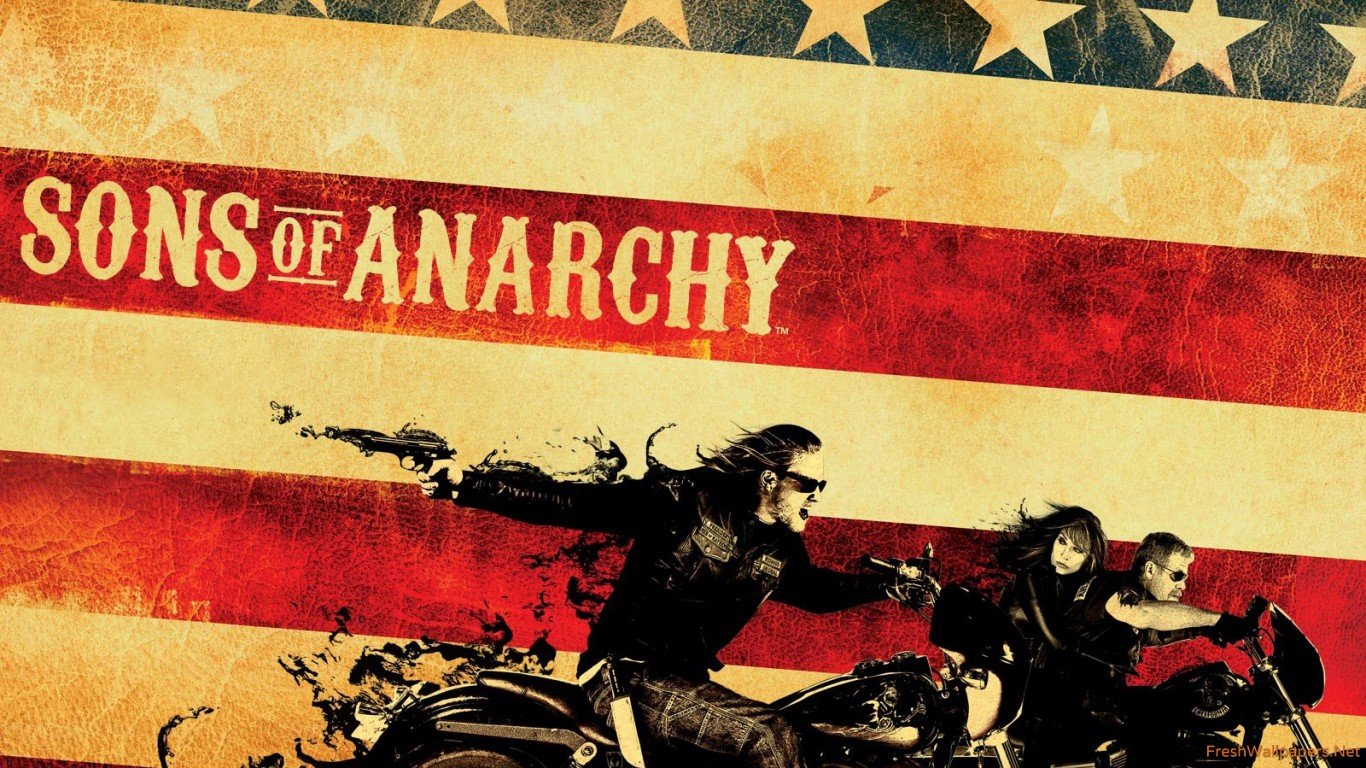The Birth of Television
In reviewing my list of films last year, it became rather apparent that I spent more time watching television shows, than engaging in the cinema. Which is not to say indulging in the excesses of television, but in the innovations of television.
Why? Well, I'm not entirely sure. However, I can share that my new favorite "cinematic experience", which has become increasingly frequent, is watching an entire television season in the course of a weekend. Most recently, we have watched five seasons of Sons of Anarchy in extended, uninterrupted bursts.
As a frame of reference, that's approximately three thousand minutes, or fifty hours of viewing time. An insane amount of dedicated, hallowed out space. For the sake of comparison, we could probably tackle Proust, in French, in that same window of opportunity.
The experience was totally immersive. Not only were we engrossed in the plot and the characters and the cinematic style and modes of presentation, there was a very real sense of not wanting the show to end. Of course, this is not specific to Sons of Anarchy, but to the "culture" or "world" - to use an expression of Wong Kar Wai's - that is constructed within the particular series.
We felt complete absorption, but not in the same way we watch the news or late night talk shows - which we rarely engage. No, it was a refreshingly tonic, exhilarating sensation. It is, in many respects, the same sensation we find in the best of cinema: the convergence of the spectator with the spectacle. All the same, there's always the risk of total absorption, as demonstrated so eloquently in Videodrome.
The continuity of the television series, despite the constant threat of interruption, and ultimately, being discontinued, imparts a sense of jubilation and triumph. It seems as if, contra the cinema, it will go on forever. You could literally be enmeshed in the folds of the story, endlessly. We could, just as literally, watch a character age within our lifetime, and not just as in the famous scene in Citizen Kane.
But, the mode of interruption itself has also been altered. No longer is television, at least on this model, riddled with advertisements. Instead, it's been forced to reconfigure itself. We've experienced a radical departure from the traditional format. It's precisely here that television is trying to figure itself out.
It's not that the television is competing with the cinema - although it is - but rather, that it's innovating its own space. After so many years, it feels like it's finally departing from its strong roots in the radio, and developing its own path.
As the cinema becomes less and less of an event, not only physically (watching films at home, instead of the theater), but also, temporally, (as the time from a movie entering the theater to the home shortens), the television has witnessed a resurgence.
*As a side note, in the past few years, we have watched: Sons of Anarchy, Madmen, Downtown Abbey, Game of Throwns, The Killing, Friday Night Lights, Walking Dead, & Boardwalk Empire.

